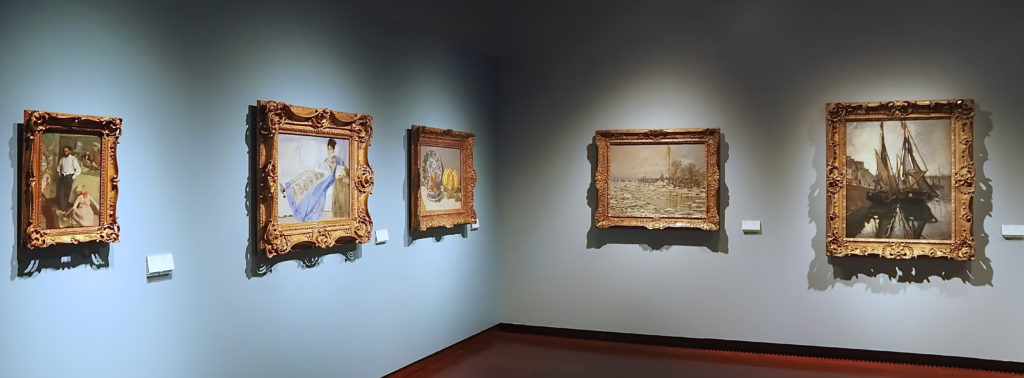Quick Hits
Daily brief research updates from the cognitive sciences

“Imagine you are a master thief doing a heist at an art museum,”. These were the instructions, that may sound strange, at the start of a scientific experiment. All harmless of course and something we can relate to with many an entertaining film about master thieves.
This was all part of setting the scene in a computer game to measure memory in a clever experiment conducted by Alyssa Sinclair and colleagues at Duke University. But, and this is crucial, the instructions given differed slightly and this is what led to different learning and recall outcomes.
The potential master thieves, study participants, 420 adults in all, were told that they were in the moment of the heist itself or, alternatively, that they were scouting out the museum for a future heist. The virtual museum was exactly the same with four coloured doors leading to four rooms with different collections of art with some picture and collections being more valuable than others.
And these two mindsets labeled a high-pressure mindset, needing to perform in the moment, and a curious mindset gave noticeably different outcomes when measured the following day.
The following day participants logged back in and were queried on their recall of the paintings and their values. They were presented with a whopping 175 pictures, 100 from the game and 75 additional ones, and asked to identify them and place the respective values to them.
Those who were in the scouting, curiosity, mode, the curiosity mindset were much better at identifying the correct pictures and assigning the correct values to them.
It seems that this lower-stress state allows for better mapping of the world and therefore better memory and recall. However, it’s not all bad for the high-pressure mindset. Though recall was lower, they were able to more effectively identify the highest value pieces and subsequently “won” on collecting the most stash.
This highlights what other research has pointed to, namely that high-pressure is good for value-based judgements in the moment. This is the proverbial scenario of escaping from the threatening bear – if you are faced with a bear, scouting the environment and remembering this, is not the best strategy and immediate value-based i.e. save my neck, judgement is needed.
It also does show that curiosity is effective for learning and needs to be in lower pressure situations. This in our adult lives can, however, be challenging, as it can be for many businesses. We are often moving constantly from one high-pressure situation to another and this can therefore impede learning and recall (not to mention leave us in a constant state of stress).
So the big outcome of this is that for learning and recall, curiosity is the best mindset – and this is something that is free and accessible to all of us.
Curious to learn more? I reported previously that curiosity could be an inborn trait and the newly discovered brain networks that drive curiosity.

Andy Habermacher
Andy is author of leading brains Review, Neuroleadership, and multiple other books. He has been intensively involved in writing and research into neuroleadership and is considered one of Europe’s leading experts. He is also a well-known public speaker, speaking on the brain and human behaviour.
Andy is also a masters athlete (middle distance running) and competes regularly at international competitions (and holds a few national records in his age category).
References
Alyssa H. Sinclair, Yuxi C. Wang, R. Alison Adcock.
Instructed motivational states bias reinforcement learning and memory formation.
Proceedings of the National Academy of Sciences, 2023; 120 (31)
DOI: 10.1073/pnas.2304881120
More Quick Hits
COVID on the Brain
Many COVID-19 patients have reported various neurological symptoms – the well-known brain fog, but also headaches and decreased cognitive function over months and extended periods of time. This even without serious infection or hospitalization. The research seems to...
Life satisfaction after work related to personality traits
As many of you know I have done plenty of work into personality and so found this study interesting. Dusanee Kesavayuth of Kasetsart University in Bangkok, Thailand analysed data from 2,000 adults aged between 50 and 75 in the British Household Panel Survey and found...
Unique regulation of brain in yoga practitioners
Quick HitsDaily brief research updates from the cognitive sciences es, you yoga practitioners knew you were special and here is the science to prove it! In this older study I came across (2018) participants were recruited to see how they dealt with...
Neurodivergence and the lonely brain
Quick HitsDaily brief research updates from the cognitive sciences eurodivergence is term that describes those that are not “neurotypical” such as those with autism and ADHD. In the surge of research into loneliness spurred by the pandemic it has...
Art Engages the Social brain
Quick HitsDaily brief research updates from the cognitive sciences reported in last week’s Quick Hits on how engaging in the arts has a relationship with self-control and avoidance of disagreeable and criminal behaviour and that is why this...
Swearing can increase strength, self-confidence, and risky behaviour
Quick HitsDaily brief research updates from the cognitive sciences wearing is frowned upon in many circumstances but is also used by many people in casual situations and particularly by comedians. So why do we swear if it is taboo? A team of...






